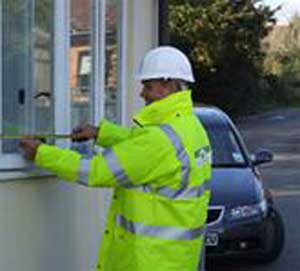Building Control Officer
Tasks & duties

Building control officers may do some or all of the following:
-
ensure building rules set out in the Building Act 2004, the Building Code, council by-laws and regulations are adhered to
-
receive and process building consent applications
-
issue consents that are compliant with the building code and law
-
inspect building work at regular intervals to ensure compliance with the New Zealand Building Code
-
issue notices to fix building work that does not comply with regulations
-
keep accurate records of inspections, including changes to plans
-
give advice on building regulations
-
discuss building work with relevant people such as builders, architects and owners
-
deal with complaints from the public regarding building projects or non-compliance of the law
-
issue Code Compliance Certificates when building projects are completed
Specialisations
Approvals/Consents Processing Officer
Approvals/consents processing officers spend most of their time in the office receiving and processing building consents and reviewing plans.
Field Inspection Officer
Field inspection officers spend most of their time doing on-site inspections to make sure compliance is being achieved throughout the building process.
Skills & knowledge

-
up-to-date knowledge of the Building Act 2004, Building Code and other related building and plumbing regulations and standards, local by-laws and town planning regulations
-
knowledge of building and plumbing methods and materials
-
skill in interpreting drawings, architectural plans and diagrams
-
good maths skills for making calculations, such as working out floor areas for buildings
-
writing skills
-
good public relations, communication and listening skills
-
planning and organisational skills
-
basic computer skills
Entry requirements
There are no specific entry requirements to become a building control officer. However, experience in the building industry and qualifications in construction, building science, architectural technology, carpentry or plumbing are useful.
Secondary education
Building control officers need to have at least three years' secondary education.
Tertiary education
As of 2013, building control officers will need to have a National Diploma in Building Surveying, specialising in either small or medium-large buildings. These courses take a year to complete, and are due to start in 2009.
Training on the job
Building control officers gain skills on the job, and through professional development courses and seminars offered through the Building Officials' Institute of New Zealand (BOINZ).
New graduates may also take part in a BOINZ cadet programme, where they are matched with more experienced building control officers.
Registration
Building control officers may become accredited building surveyors, but are not required to do so. The Building Officials Institute of New Zealand (BOINZ) offers a four-level programe of classes that leads to accreditation – a formal industry recognition of professional ability and competence.
Useful Experience
Useful experience for building control officers includes work as a builder, carpenter or plumber. Architecture or engineering work is also helpful.
Related courses
Building Science and Technology
Building Surveying (Inspection)
Urban Design and Regional Planning
For more information, please refer to Career Services.
Document Actions
